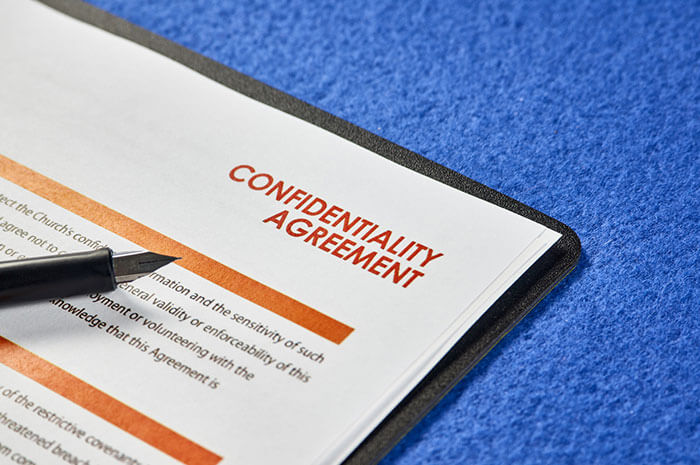
If you are searching for a business to purchase, you will be able to see generic information about the types and sizes of businesses in which you might be interested. When you find one that seems to fit your expectations, you will sign a Confidentiality Agreement, allowing a business broker to give you a packet of information about the business, including the name and location. It is crucial that you abide by the Confidentiality Agreement you have signed. Not only does it hurt the business owner to have the possible sale publicized, it also hurts the buyer. You want the operation of the business to continue strong so that you can just walk in and begin to make profits immediately after closing.
Why are business listings confidential? Most people are familiar with realtors listing houses and attempting to get information about the listings to as many people as possible. Selling a business is quite different. When a business is put on the market to be sold, there are many reasons to give generic information and not information that will show the location or name of the business. Most businesses sold are profitable and doing well, so assumptions should not be made that the business is failing and going out of business, which could happen if someone wanted to start bad gossip about a competitor or other business. Also, there is a risk of losing employees and customers. Everything should be kept confidential until the buyer and seller have closed the sale.
At that point, the seller and buyer will meet with the employees; and the seller will also introduce the buyer to the suppliers and others necessary for the operation of the business. Sometimes buyers need to meet with suppliers earlier to get their credit approved, but the suppliers are reminded of the importance of confidentiality. Of course, others who must know the business is selling, like the banker, landlord, franchisor, accountant, insurance agent, etc. are in positions that require them to keep everything confidential.
When you prove you are a qualified buyer and sign a Confidentiality Agreement, you pledge you will not, without written consent of the business, furnish, copy, reproduce or distribute, in whole or in part, directly or indirectly, the information to anyone, except your financial advisors and investors, who may be furnished with the information for the sole purpose of advising you as to the structure of any proposed purchase of the business. You are stating you will keep confidential all proprietary information made available to you regarding the seller and the business. This will include financial information, asset and equipment lists, trade secrets, customer and vendor lists, and employee information. There is usually a time period, like three or five years, that you will not disclose any of the proprietary information to persons or entities other than your employees or representatives actively and directly participating in the study and evaluation of the proprietary information for any purpose.
You will agree in the Confidentiality Agreement to return all information furnished to you without retaining copies, summaries, analyses or extracts or otherwise dispose of all information. You also agree not to use the proprietary information to harm the business by soliciting its customers and/or employees, or by disclosing the information, or the fact the business is for sale, to any of its competitors, customers or vendors. If you are unable to return the information, you will execute a certification stating that all confidential information not returned has been irretrievably destroyed.
Because of confidentiality, most meetings between the buyer and seller will be after business hours or at a location away from the business. Of course, at least one meeting will be at the business to view the location, equipment, machinery, etc. You should always schedule your meetings with the seller through the business broker and not directly contact the seller, its agents, employees, suppliers, customers and representatives. Again, this will provide much needed confidentiality for you and the seller.
When you as a prospective buyer sign a Confidentiality Agreement, you are not obligated to purchase the business or any of the assets of the business. However, the terms in the agreement are binding. Divulging the business is for sale or any information received about the business’ operations or finances could cause harm to the business and create a cause of action against you.
